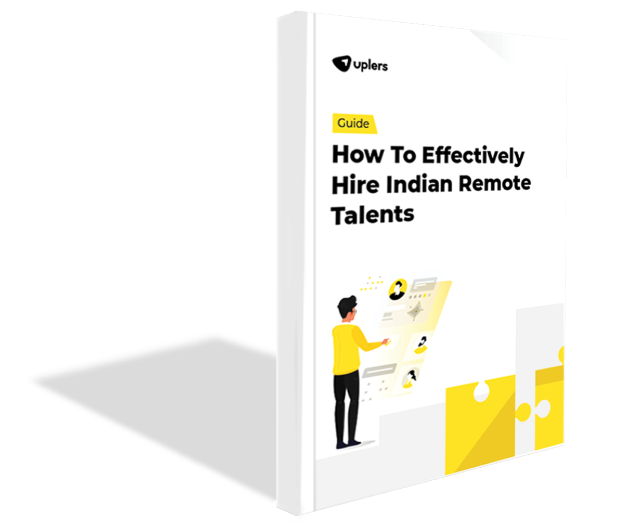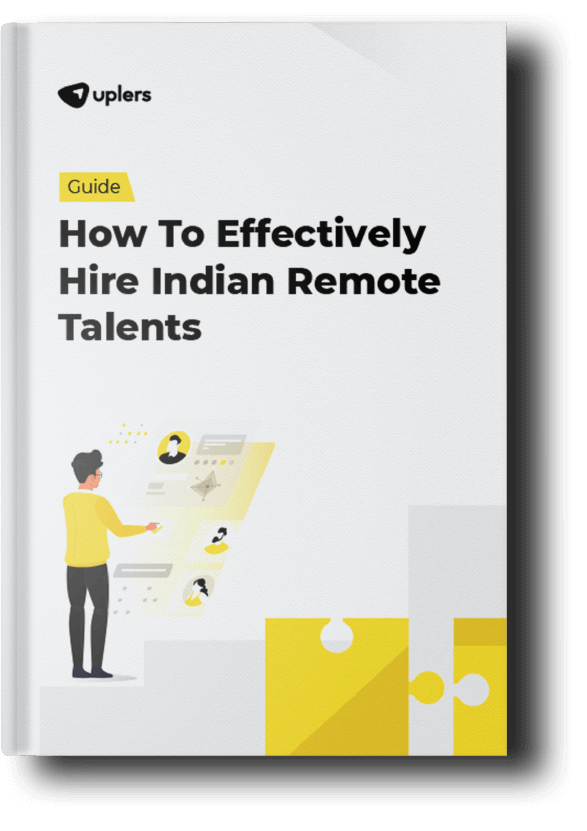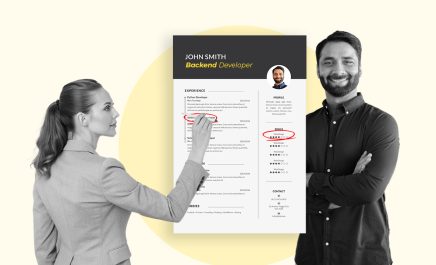Remote Interview Questions To Ask When Hiring From India: A Guide For Global Companies
- Raunak Jain
- May 17, 2023
- 7 Minute Read

When hiring tech talents from India, you can’t overlook the aspect of asking the right (remote) interview questions. Companies have embraced remote work as a cultural shift in operations and have understood the importance of soft-skills, an inevitable quality to succeed in a remote environment. Something they screen through a remote interview process.
We see a rise in remote hiring platforms, recruiting partners, offshoring, and EOR companies supporting remote hiring needs. The shift in the organization’s thinking process, how more and more global companies are open to hiring tech and digital talents in countries like India paved the way to make the hiring process more clean, precise, and swift- as needed.
Remote hiring has changed how these global companies approach getting the job done. Ideally, these companies can remotely hire an engineer in Indore, Madhya Pradesh, India, while surfing in California, creating a legal contract within minutes. Here lies the power of Talent Acquisition and the potential of the Talent pool.
So, the question arises, what type of interview questions to ask when hiring remote Indian remote talents? And how do you find out if they have the right remote skills and abilities during the hiring process? What are the key remote interview questions to ask during the interview?
These are crucial considerations that can help you identify the most suitable talents for remote work and building a successful remote team.
Taking One Step Back: Focus On Vetting
Vetting is crucial in the remote hiring process. It ensures the time and resources invested are well-spent on qualified and suitable talents. Vetting acts like a filter to eliminate unsuitable candidates and increase the efficacy of the hiring process, providing insights into customizing the interviews and catering the areas of concern.
The vetting for Indian remote talent can be devised with hygiene checks and competency assessment parameters. The process of vetting comprises the following.
- Profile Screening
- Language Proficiency
- Aptitude Evaluation
- Technical Assessment
- Cultural Assessment
- Background Verification
- Panel Interview
Vetting Check-lists
Before this article lays out the right interview questions for remote workers or when hiring an Indian remote talent for your company, we want you to understand the importance of setting up the right vetting checklist (filter) for them.

Once the talent clears all the vetting rounds, they become eligible for panel remote interview. The assessment through various tools ensures the panel interview is the evaluation in-person to assess the fit and presence of mind of the candidate. It combines SME (Subject Matter Expert), HR personnel, and a Team Lead. In the vetting process, this step ensures the candidate understands the role they have been assessed for and has clarity on the organization’s expectations.
Post all the screening filtration and process; it is pivotal for the interviewer to ask the right virtual interview questions to make the screening worthwhile. With that, the hiring process entails an investment in the candidate and an association that can impact your brand. Simultaneously tracking multiple candidates can be difficult; it needs strategic planning to complete and close the loop successfully.
Key Remote Interview Questions To Ask When Hiring for Remote Positions
Once your vetting process is over and you have screened with your stringent filtration process, candidates appearing for the panel interviews will know what to expect. Vetting is important, and it filters out the right candidates, which is arguably one of the biggest hiring challenges, and with that, you can gauge their soft skills, adaptability, and flexibility in their approach.

To assess an individual’s potential for successful remote work, we have compiled some key remote interview questions to evaluate the soft skills necessary for remote hiring.
These virtual interview questions will aid in determining whether the talent has the required traits and abilities to thrive in a remote work environment.
1. Do you feel remote work has changed the way we see work? How successful has this been for both- company and employee?
When hiring managers ask layered remote work interview questions like these, it gives them an idea of how maturely the talent will take remote work and amalgamate it with the present work routine. Remote hiring has pros and cons, a very blur line to its delectable difference. When a talent answers about a concept like remote work from the perspective of both the company and an employee- you can gauge their soft skills and how aware the person is of the situation and will take on the work.
2. Why and how remote work resonated with you?
While assessing the candidates, from technical to communication gauging, creating a storyboard during an interview is essential. It doesn’t necessarily have to be uptight, especially on the virtual end. Remote working has named itself as a ‘comfort while working’ but comes with many challenges such as blurring the lines of work and home. This question hits the nail on what the individual talent thinks of remote working and why it is best suited for them.
3. Can you share your experience working remotely, including the difficulties you encountered and the methods you utilized to maintain productivity?
The right remote job interview questions and their answers like the above will help you gauge the potential of the talent and their experience with working remotely. You will also be able to sense their version of responsibility and maturity and how they handle work and productivity, even when there are times when it is challenging. This question piques the empath in the employer, but it’s a link to knowing the talents and the way they utilize their experience.
4. What are your collaboration values while working in a remote team? How do you ensure clear communication when working with a diverse team structure?
Such interview questions for remote jobs can help recruiters gauge how a talent operates in a diverse global setting. While working in such an environment can be exhilarating, it demands a strong sense of responsibility and mutual understanding from both the employer and the talent. By asking this question, one can infer the level of collaboration and adaptability that the talent possesses. Cultural alignment, flexibility, and adaptability are essential attributes that must be considered while hiring Indian tech talent. Having a clear understanding of this can be highly beneficial.
5. How do you schedule your day when working?
Although it may appear simple, this remote interview question provides valuable insights into a talent’s ability to manage their work remotely when collaborating with overseas companies. It allows for assessing their time management skills, including prioritizing tasks, organizing their routine, and managing their work hours. Their answer to this question can reveal whether they can work independently in a remote setup or require more guidance and support.
6. Do you have any experience with collaboration tools used in remote teams? If yes, which ones?
Working in a remote setup demands collaboration tools, such as Skype, Slack, Google Drive, Zoom, etc., for constant communication and cognizance of the tasks at hand. These tools are crucial for keeping up with colleagues in different countries and time zones. The talent’s experience with such tools should count as brownie points, as they can quickly adapt to the remote culture versus others who have never used these tools.
7. Have you ever been in a conflict with your colleagues? How did you handle it? What happened at last?
As a part of the remote interview process, asking for a real-life scenario, particularly one involving conflicts and their resolutions, places the talent in a position where they must explain the faults and responsibilities of all parties involved. This question aims to assess accountability and the necessity for conflict resolution. Through their response, one can evaluate how the talent handled the situation, their ability to narrate events, their sense of accountability, and their approach to solving the issue.
8. How good are your tech skills in solving basic software and connectivity issues?
You may think what is the relevance of this virtual interview question, right? You may even question the point of asking a question on solving connectivity issues: ‘ I am hiring a campaign manager.’ Still, questions like these help you to gauge the nature of the talents and this objective on problem-solving and analytical thinking.
Troubleshooting a mere connectivity error and sorting a system’s updating issues- gives you a sense of how this person handles the problems independently and knows when to escalate it without wasting much time.
The question has a whole lot more meaning layered than you think. While you are at it, find out how good they are at tackling system crashes, troubleshooting software, or resolving slow internet speed – which do not require much technical expertise.
The ideal outcome of asking the above questions is to identify the talent’s personality, whether they align with your company’s culture, and if they are the right fit.
Asking The Right Remote Interview Questions In An Interview Is Just A Fragment Of The Funnel; What Else Then?
Hiring Indian remote talents through a remote interview process can be overwhelming, even though more and more multinational companies prefer India for skilled techies- not having a proper, thorough knowledge of hiring and its stages can lead to making mistakes.
Understanding the need for assistance with information on hiring and the importance of different stages of hiring like;
– Choosing the right platform to post the job opening,
– Devising the right JD,
– Conducting background checks, and other aspects of analytical data and census;
We created a thorough guide on how you can hire Indian remote talents effectively. It focuses on various approaches, from AI tools to different hiring funnels and ways to eliminate the room for errors.
Hiring on your own is easier said than done, it requires one’s time, energy, and effort on every stage- from sourcing, vetting, panel selection to on-boarding. This can get exhaustive, where Uplers acts as a matchmaking platform for global companies to hire Indian remote talent without hassle. With our thorough and compliant platform aiming to make hiring effortless, we have set a benchmark on the hiring module for all the recruiting challenges that would present themselves during the process.
As a company, we have curated a process for vetting and sifting out the top talent in the market. Uplers uses an intricate process to cull out global environment-ready professionals.



Thank you for submitting the details!
We will keep your information safe. Feel free to contact us with any questions at hello@uplers.com
Please check your email for next steps shared by Robert.




















